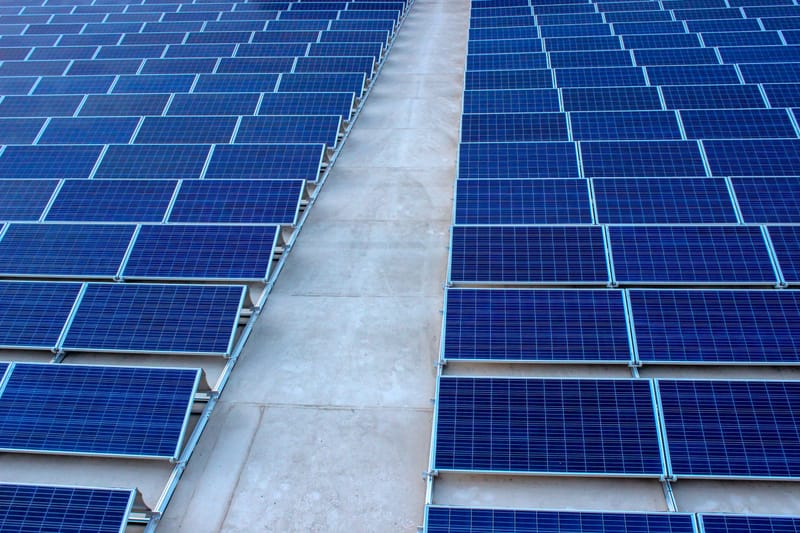Commercial / Non-Domestic EPCs

We are now offering Non-Domestic EPCs otherwise known as Commercial EPCs.
If you commission us, we will provide you with an EPC together with basic advice on how to cost effectively upgrade the energy efficiency of your building.
Should you wish to engage us further as consultants, we can offer considerably more in depth support re energy and water efficiency and on site renewable energy such as solar power. This help can extend as far as assisting with obtaining quotations, through to participation in project management.
What is an EPC?
An EPC is a careful evaluation of a building to model as accurately as possible the amount of energy which will be required to run the building.
This energy includes heating, hot water, cooling, lighting, ventilation, ancillary pumps and fans to circulate air and water, and extraction e.g. toilet extractor fans. What is not included is computers (Other than in building management systems), factory tools, office equipment or anything else not involved in managing the building.
During an EPC, the dimensions and function of each room, details of the structure and insulation of floors, walls (internal and external), ceilings, roof, windows and doors as well as wherever possible the make, model, and datasheets of HVAC, hot water, lighting, extraction and control systems are gathered and fed into a computer model called the Simplified Building Energy Model (Or certain accredited equivalents defined by the Buildings Research Establishment) to determine the EPC of the building, or at early stages pre or during construction and fit out but before marketing, its compliance with the relevant version of Part L of building regulations (BRUKL).
Where admissible evidence such as datasheets, make and model of equipment, or exact details of the structure are not available, default values built into the software are used instead - often resulting in a slightly worse calculated efficiency. (Default values are nearly always very near the bottom of a range of possibilities e.g. 50 lumens per watt for LED lights when the best available LED lights are around 3 times more efficient.)
If you need an EPC it is strongly in your interests to gather together as much relevant data as possible such as floor plans, construction details, and datasheets for windows and doors plus all the equipment previously listed which is used to run the building.
(The more information is provided, the easier it is to produce an EPC. The EPC is also likely to be more accurate, and give a more favourable score as less default - usually less favourable values will be entered into the software)
What does the law say?
An in date EPC is required to be in place before property can be marketed for sale or rent.
An EPC lasts 10 years and is graded from A+ to G
Since 2018, it has been illegal to rent out commercial properties to new tenants, or to renew a tenancy for an existing tenant unless an EPC of at least E is obtained, and from April 2023, the same will apply to existing tenancies even if they are ongoing and not due for renewal. (This is under Minimum Energy Efficiency - MEES standards)
(There are a few limited exceptions - such as if efficiency measures would devalue a property by >5%, where measures needed cannot be delivered with a 7 year payback period, or for 6 months where a new landlord takes over a property. The requirements also do not apply to leases of less than 6 months, places of worship, and under certain conditions, to buildings with permission for demolition). In these circumstances a REGISTERED exemption can be applied for and obtained.
Landlords breaching these requirements for up to 3 months can be fined 10% of rateable value capped at £50,000, or for longer than 3 months, 20% of rateable value capped at £150,000.
In addition, a lease granted in breach of MEES will be void, and tenants cannot be evicted, or required to comply with lease terms as no valid lease exists - meaning quite likely a tenant who is not required to pay rent, and cannot be thrown out!
To ensure that buildings are and remain in compliance with MEES, the following are suggested as part of any lease agreement.
1. That the tenant is not permitted to carry out any action which reduces the energy efficiency of the building.
2. That the landlord retains the right with suitable notice to access the building for the purpose of obtaining an updated EPC, and to make energy efficiency upgrades to the building e.g. to replace fluorescent lights with LED, or update HVAC equipment.
Note:- Landlords carrying out mandated energy efficiency upgrades as a result of an EPC that would be non-compliant with MEES cannot pass this cost on as a service charge cost.
(The above is general information not to be construed as legal advice - if in doubt, consult a qualified legal advisor)
The Future of MEES
MEES regulations are currently out for consultation however it is generally expected that MEES requirements will be tightened in 2025 - most likely to D, and again in 2030 - most likely to B or C.
Better than Compliance
There is evidence to suggest that buildings which are significantly better than compliant with MEES will rent or sell more easily, and that the rental or sale price is likely to be higher. We would always encourage a forward looking approach so that buildings being prepared for market now are as far as possible upgraded to a B or better so as to remain MEES compliant for the full duration of the EPC.


